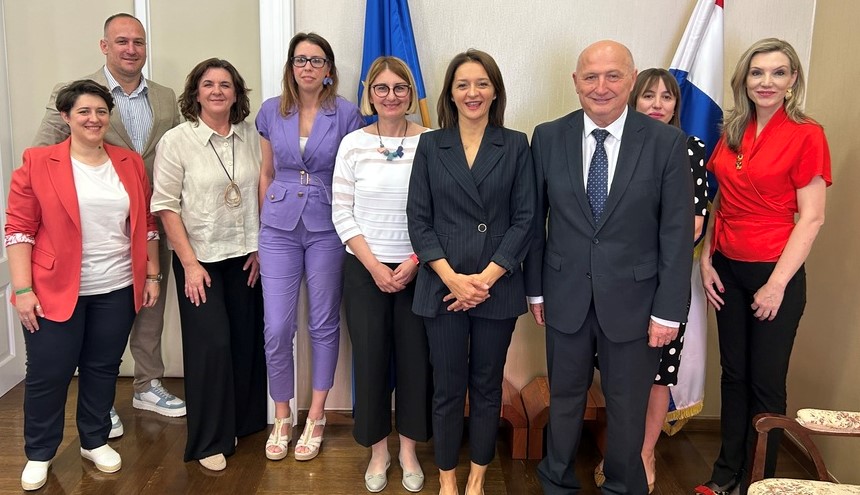A delegation from the Constitutional Court of Montenegro, led by its President Snežana Armenko, paid an official visit to the Constitutional Court of the Republic of Croatia in Zagreb to exchange experiences and strengthen regional judicial co-operation.
During the visit, the Montenegrin delegation participated in a series of working sessions focused on the application of European Court of Human Rights (ECtHR) standards in constitutional case law, internal procedures and functioning of the case-law departments and department for admissibility criteria.
A highlight of the visit was the meeting between President Armenko and her Croatian counterpart, President Miroslav Šeparović. The two Presidents discussed areas of mutual interest, regional cooperation, and the importance of aligning constitutional practices with European human rights standards.
This study visit marks an important step in strengthening institutional ties and promoting judicial co-operation at both the leadership and expert levels. It is supported in the framework of the action “Strengthening accountability of the judicial system and enhancing protection of victims’ rights in Montenegro”, part of the joint European Union and Council of Europe programme “Horizontal Facility for the Western Balkans and Türkiye” which is enabling the Beneficiaries to meet their reform agendas in the fields of human rights, rule of law and democracy and to comply with European standards.


